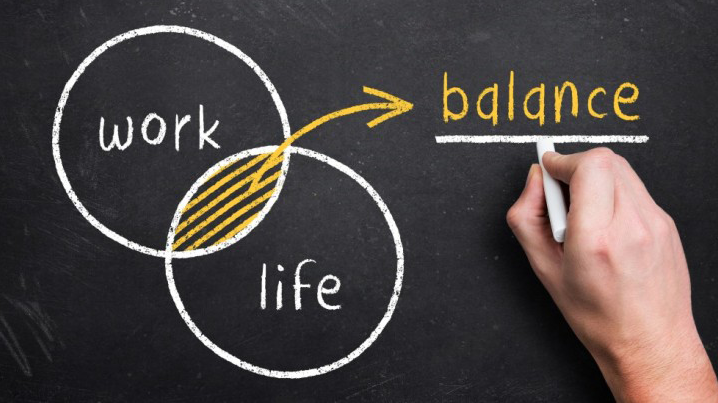The Challenge of Mental Health in the C-Suite
The cost of success often comes with a high price tag, and senior executives are familiar with this. The gravity of the expectations placed on them can be daunting, and it is too easy for their mental health to take a backseat as they juggle multiple responsibilities — both at work and home.
Stress can quickly accumulate, especially with the backdrop of current events (e.g., COVID-19 and gloomy global economic forecasts), adding new levels of complexity to an already demanding workload. As a result, leaders may become overwhelmed and feel they need to perform to their expectations.
The problem is compounded when executives find themselves in isolated positions — with few peers or colleagues who can understand the unique demands of their position and families who may not be aware of the full scope of their professional responsibilities. This can lead to feelings of frustration, loneliness, and even depression.
Why Mental Health in the C-Suite Matters
Keeping mental health in check is essential for everyone, but it’s especially vital for executives. High-level positions often come with tremendous pressure, making executives more prone to stress and burnout. Furthermore, their decisions impact not only their own lives but also the direction of the entire organisation and the well-being of its employees. This is why leaders must proactively promote their mental health and well-being.
Maintaining a balance between personal and professional responsibilities can be challenging, but the rewards are profound. By prioritising mental health, executives will improve their own quality of life and also foster a culture within the organisation that encourages employees to take care of themselves.
The Unique Pressures of High-Level Executives
Executives at the C-Suite level encounter distinct pressures that can impact their mental well-being. They are responsible for making significant strategic decisions, handling crises, dealing with public scrutiny, and managing stakeholder relationships, and it’s no surprise that such high-stress levels and responsibility can lead to mental health issues like anxiety and depression.
The Impact of Poor Mental Health on Performance and Leadership
Poor mental health can impact an executive’s ability to think clearly, make decisions, and lead effectively. Consequently, leaders with unaddressed poor mental health can foster a toxic working environment, affecting the company’s overall performance, which in turn fuels additional stress and the cycle continues.
Recognising Signs of Poor Mental Health
Identifying Stress Indicators and Burnout
Stress and burnout can be insidious, creeping up unnoticed until they take a severe toll. Signs to watch out for include persistent fatigue, difficulties in concentration, sleep disturbances, and a significant change in appetite. Other noticeable signs are physical pain (e.g., headaches and stomachaches), mood swings, and irritability.
It is also essential to pay attention to changes in behaviour — such as a decrease in work performance, use of unhealthy coping mechanisms (e.g., alcohol or drugs) or withdrawal from social activities — that can indicate something isn’t right.
Understanding the Emotional Manifestations of Overwork
Overwork can lead to emotional exhaustion, cynicism, and feelings of reduced professional accomplishment. Recognising these signs and taking timely action to prevent them from escalating into severe mental health conditions is critical.
Strategies for Maintaining Mental Health in the C-Suite
Building a Healthy Work-Life Balance
- Setting Boundaries Between Personal and Professional Life
It is essential to draw a clear line between work and personal time. This might include setting specific work hours, avoiding work-related activities during family time, and taking regular breaks during the day.
- Promoting Mindful Leadership
Embracing mindful leadership can help executives stay focused, manage stress, and lead more effectively. According to Mindful.org, mindfulness can improve decision-making and foster emotional intelligence.
Prioritising Self-Care
- Regular Exercise and Proper Nutrition
Physical health directly impacts mental well-being. Regular exercise, alongside a balanced diet, can significantly improve mental health by reducing stress levels and improving mood.
- The Importance of Rest and Rejuvenation
Adequate rest is crucial for good mental health. Sleep Foundation emphasises that good sleep hygiene can improve mood, increase productivity, and reduce the risk of mental health disorders.
Seeking Professional Help
- When to Consult a Mental Health Professional
It’s essential to seek professional help if feelings of stress, anxiety, or depression become overwhelming. Leading mental health organisations like Mind provide resources and advice on when to seek help.
- The Role of Therapy and Coaching in Executive Leadership
Therapy and coaching can benefit executives dealing with stress or burnout, helping them develop effective coping strategies and promoting better mental health.
Implementing Workplace Policies that Support Mental Health
Encouraging Open Dialogue around Mental Health
Creating an open dialogue about mental health can combat stigma and encourage individuals to seek help when needed. As leaders, executives can model this openness, fostering a culture of mental health support throughout the organisation.
The Role of Human Resources in Supporting Executives
Human resources can support executives’ mental health by offering resources like Employee Assistance Programs (EAPs) and facilitating mental health training sessions.
Creating a Culture of Well-being and Support
Promoting a culture of well-being within the organisation can make a significant difference in the mental health of all employees, including those occupying leadership positions. This might include implementing flexible work policies, promoting work-life balance, and providing mental health support resources.
The Long-term Benefits of Prioritising Mental Health for Executives
By prioritising mental health, executives can enhance their leadership effectiveness, boost their overall well-being, and cultivate a healthier, more supportive work environment. Prioritising mental health isn’t just beneficial; it’s essential for long-term success in the demanding world of the C-suite. As an experienced executive mentor with a background in human behaviour, neuroscience and success strategies, I can help you develop processes for maintaining your mental well-being and enhancing your executive leadership.
If you’re ready to join the conversation around improved executive mental health, contact me today — I look forward to hearing from you! Together, we can ensure optimised performance and effective, resilient leadership.



